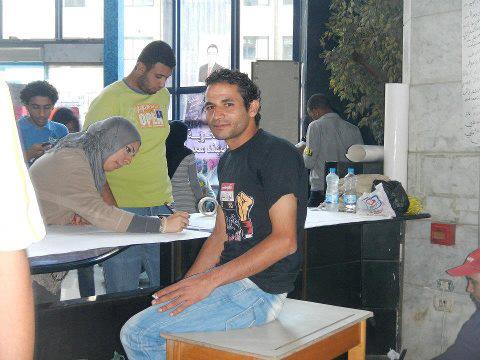The Ministry of Interior revealed the whereabouts of 118 citizens inquired for by the state-affiliated National Council for Human Rights (NCHR) upon receiving complaints of “alleged enforced disappearances”.
In a Friday statement, NCHR published the response received by the ministry. NCHR filed 190 missing person complaints with the ministry and demanded a clarification to their whereabouts.
“Regarding complaints about claims of enforced disappearances, the Ministry of Interior said that 99 of the names are held in different detention facilities pending legal cases,” the statement read.
It said that another 15 were released from police custody, three were fugitives and one is a case that ran away from home. NCHR member Nasser Amin, charged with the enforced disappearances file, emphasised that the council verifies information provided by the ministry.
“We also wait to see if any of the relatives of the cases mentioned by the ministry object to official reports,” Amin told Daily News Egypt on Saturday. However he does not describe the cases as those in which persons were “forcibly disappeared”.
Those cases represent situations of illegal detention. “Those are extra-judicial arrests that prevent suspects from exercising their rights to speak with their families to inform them of their locations and the right to a lawyer’s assistance,” Amin said.
The council said three additional cases had been resolved since the relatives of the missing persons informed the council that they had been located in detention facilities. Sherif El-Afifi was among the three detainees found and his sister confirmed to Daily News Egypt that he had been located.
El-Afifi was reportedly arrested from his house by the police in the last week of November 2015. His family did not know where he was located for nearly 50 days. El-Afifi was revealed Thursday to be in remand in the central prison in Giza, according to his family.
For lawyer at the independent Egyptian Initiative for Personal Rights (EIPR) Sherif Mohieddine, the disclosures of the ministry are a “confession to the crime”. “Whether the ministry is aware or unaware, their response is proof that security bodies are terrorising people in a systematic practice,” Mohieddine told Daily News Egypt.
He has been handling cases of reported enforced disappearances and explained that the relatives of the victims spend too much time and effort between official complaints filed to general prosecution authorities and NCHR. They are looking for their family members in police stations and usually do not find information regarding their whereabouts.
Providing an example of a case he personally worked on, Mohieddine said that security forces stormed the apartment of a citizen and arrested him along with his son in July 2015.
“After back and forth with authorities to find out his location and as the family was filing an official complaint at the police station, a conscript accidently let slip a document issued by prosecution authorities showing that the two were in the custody of Homeland Security [National Security Apparatus],” he recalled.
Like Amin, Moheiddine asserted that there were means of verification used in every reported case. “In cases of home arrests, we usually have eyewitnesses,” he said. “But in cases where people just vanished and there have been contacts made by security bodies to their families, it is harder to prove an ‘enforced disappearance’”.
A case illustrating that example would be Ashraf Shehata, a 40-year-old independent lawyer, who owned a private school in Kerdasa. Maha Mekawy, his wife and a member of Al-Dostour Party, said he had been “kidnapped by security forces” on 13 January 2014 and supported her argument with further details in a previous interview with Daily News Egypt last October.
Nonetheless, Mohieddine believes the issue goes deeper than “just revealing the location of a detained person. There are consequences of being subject to such act of disappearance. There should be accountability and compensation”.
Amin does not see the proper application of the term “enforced disappearance” on the cases looked into by NCHR and the Ministry of Interior. “A person who forcibly disappeared is someone who has never been found. Otherwise, it is not. Even a death certificate removes a person from the category of forcibly disappeared,” Amin said.
On the other hand, Mohieddine referred to the UN International Convention for Protection from Enforced Disappearance of 1993, which stated that “enforced disappearance is any other form of deprivation of liberty by agents of the State or persons or groups acting with the authorisation. It is usually followed by a refusal to acknowledge the deprivation of liberty or concealment of the fate or whereabouts of the disappeared person, which place such a person outside the protection of the law.”

